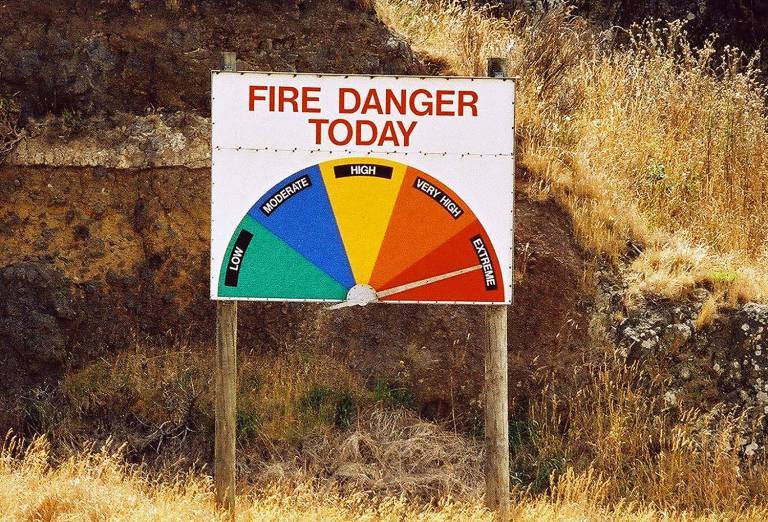New IRDR PhD Studentship available
5 September 2022
A new PhD in Risk and Disaster Reduction – warning efficacy is now available in the UCL Institute for Risk and Disaster Reduction

A new PhD Studentship has been announced by the UCL Institute for Risk and Disaster Reduction (IRDR). Available for UK and EU students, the studentship is worth £18,062 per annum for full-time study within the IRDR over three and a half years.
The UCL Institute for Risk and Disaster Reduction (IRDR) inspires innovation and evidence-based practice focused on improving disaster risk reduction (DRR) through our research, education, and partnerships. This creates a better life for many people by reducing the negative impacts of disasters.
To ensure disaster warning systems have the desired effect of triggering action and saving lives, we need to identify what factors influence an individual’s adoption of safety-seeking behaviour. This project aims to reveal the decision-making process of individuals and households who receive warnings. The student will design and distribute questionnaires and undertake interviews to determine individual responses to recent warnings, including at least one case of a false alarm. The project will include examination of what aspects of the warning, perceived risk, and resident’s personal circumstances affected actions taken. Findings will be compared to existing literature from worldwide case studies. The research will add to understanding of the relationship between outcomes, understanding, trust and future responses, as well as contributing to research into how to educate individuals about the probabilistic nature of hazards and warnings in the aftermath of false alarms, so as to maintain protective actions following future warnings.
The student will be supervised by Prof Joanna Faure Walker (IRDR) with secondary supervisor Prof Adam Harris (Experimental Psychology). In addition to IRDR networks, they will further benefit from being a member of the UCL Warning Research Centre.
The IRDR is an exciting cross-UCL department, which leads research, knowledge exchange and teaching in the fields of risk and disaster reduction and humanitarian action. By providing a focus for UCL’s activities, with its breadth of disciplinary emphasis, promotion of novel multidisciplinary research and translation into practice, the IRDR aims to assume a role of leadership both in the UK and internationally. The IRDR is an academic department in the Faculty of Mathematics and Physical Sciences, but works across all UCL’s faculties, spanning natural and social sciences, mathematics and statistics, engineering and development planning, global health, anthropology, the humanities, ethics and laws, and contributes to UCL’s Grand Challenges.
The IRDR has established the Humanitarian Institute, Centre for Digital Public Health in Emergencies, Centre for Gender and Disaster, and jointly with UCL Department of Science and Technology Studies the Warning Research Centre. The IRDR conducts research around the themes of disaster risk reduction and resilience, cascading crises, natural hazards, climate change risk and adaptation, humanitarian crisis response, GIS and remote sensing, law and economics, conflict and migration, catastrophe modelling, warning, digital health in emergencies, and inclusivity including gender responsive resilience, in order to integrate education, research, innovation and enterprise for the long-term benefit of humanity.
Key requirements
The principal requirements for admission to the MPhil/PhDs in the IRDR are a 1st class or high upper 2nd class bachelor’s degree or a master’s degree with merit or distinction in relevant disciplines. Excellent English oral and written communication skills are required. Candidates should have excellent knowledge and experience of qualitative and/or quantitative research methods and social science research methods and/or quantitative methods, and an enthusiasm for fieldwork. Candidates should be able to travel nationally and internationally for research. A first degree or equivalent experience in social science and/or psychology would be an advantage. Experience with primary data collection, conducting questionnaires and undertaking fieldwork is an advantage.
How to apply
Full details of the studentship can be found here.
Closing date: 20 October 2022
Informal enquiries, if you have something to ask, may be addressed to Dr Joanna Faure Walker (j.faure-walker@ucl.ac.uk).
Candidates should apply for the Research Degree: Risk and Disaster Reduction (RRDRDRSING01) by completing the application form on the Graduate Research Degrees website. For the first line, state explicitly “PhD in Risk and Disaster Reduction – warning efficacy (supervisor Joanna Faure Walker)”. Please include a one page cover letter outlining your suitability for the role and why you want the studentship. Do also ensure you fill in your qualifications and referee details.
In Section 2 of the application, please list the department (15) as “Institute for Risk and Disaster Reduction”
and the Research subject area (17) as “Risk and Disaster Reduction”.
In addition to submitting the full application according to instructions on the form, please submit section 1 to 5
to irdr-enquiries@ucl.ac.uk under subject line “PhD studentship application – warning efficacy”.
 Close
Close

